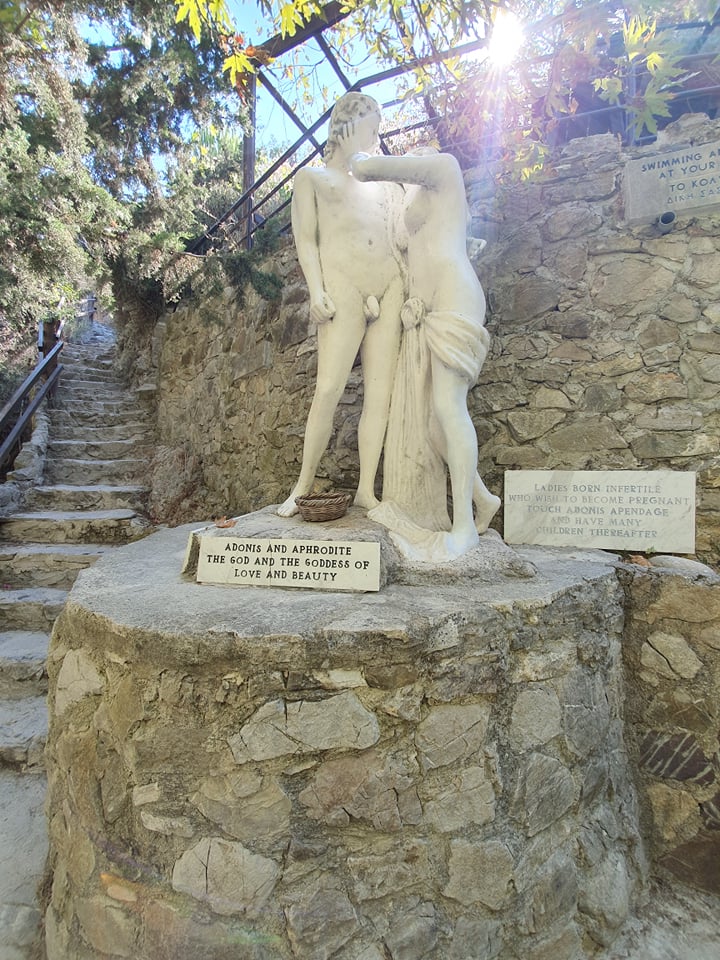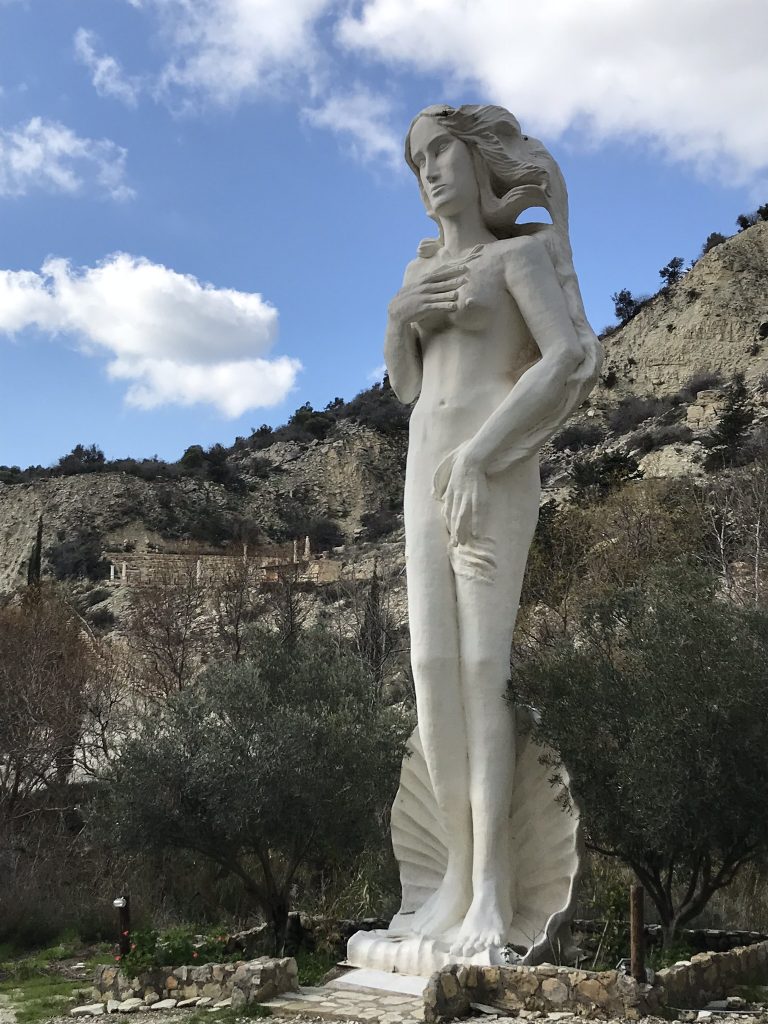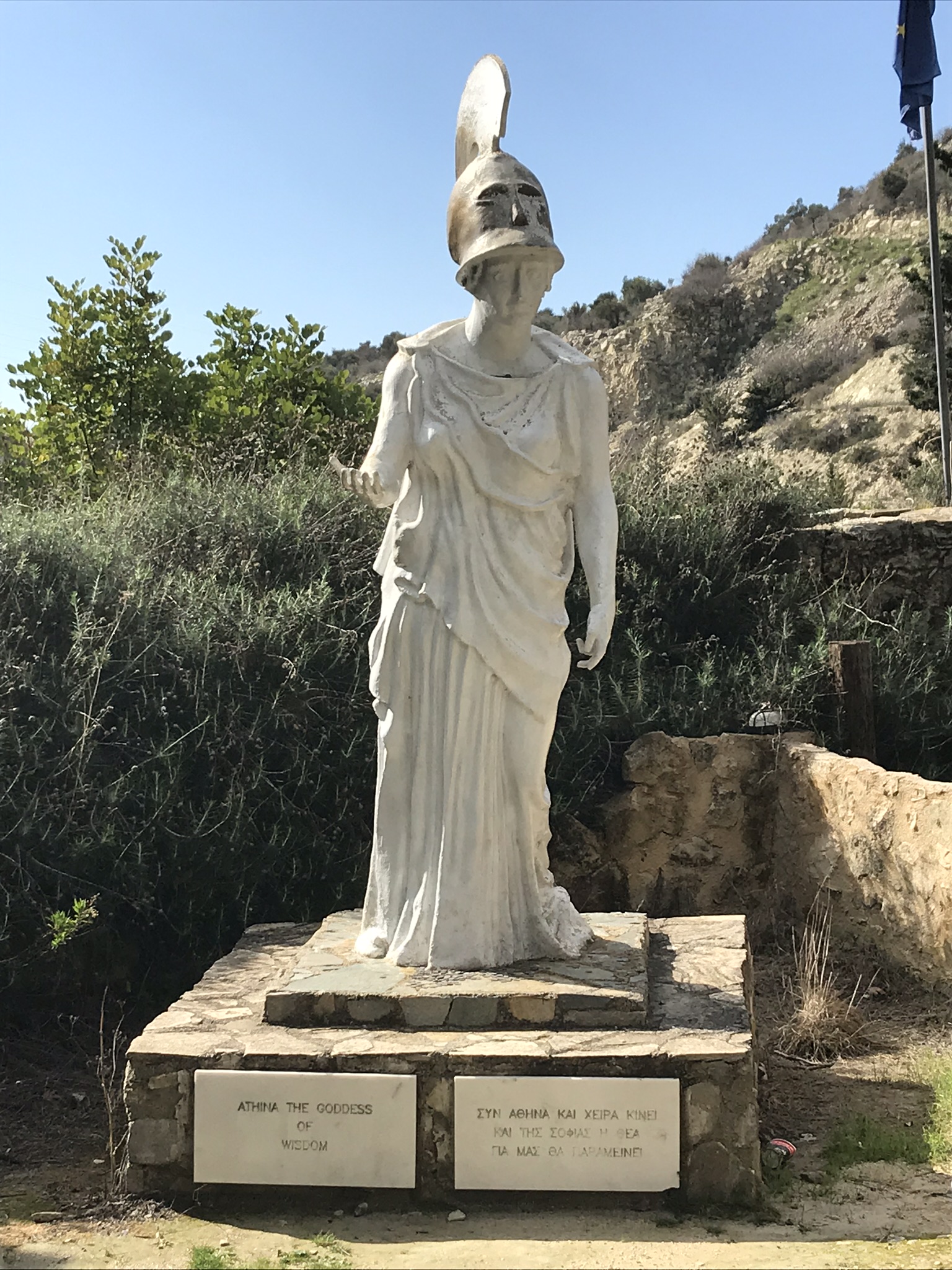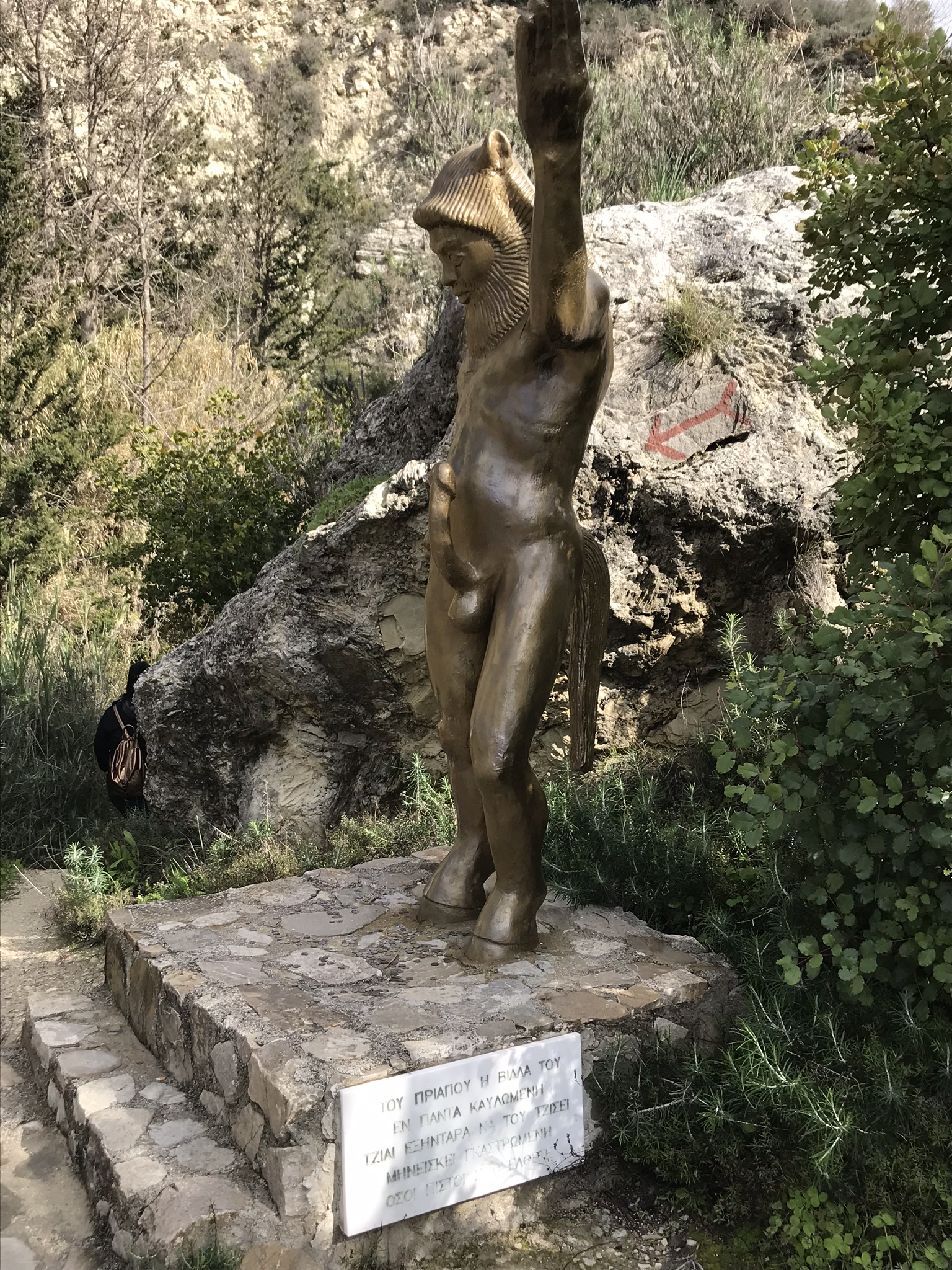Statues
From Greek
Mythology
Greek mythology are tories concerning the gods, heroes, and rituals of the ancient Greeks. The myths contained a considerable element of fiction that was recognized by the more critical Greeks, such as the philosopher Plato in the 5th–4th century BCE. In general, however, in the popular piety of the Greeks, the myths were viewed as true accounts. Greek mythology has subsequently had extensive influence on the arts and literature of Western civilization, which fell heir to much of Greek culture.

Adonis and Aphrodite
The myth of Aphrodite and Adonis is one of the most popular Greek myths, since it is directly associated with love and Eros. Not even Gods and deities could escape the powerful arrows of God Eros and fell in love with mortals with catastrophic results.
Aphrodite and Adonis is a classic myth about lust and rejection, enhanced with several spicy details about the Goddess of Love and Lust and the beautiful mortal Adonis.
Adonis is the personification of masculine beauty to which he owed his fate according to the Greek myths. There are actually two known myths about Adonis and Aphrodite. The first myth refers to Adonis’ early years, and the second to his death and Aphrodite’s role in it.
The first myth of Aphrodite and Adonis involves the man’s parents and is a story about beauty, love and jealousy. Adonis’ mother was the beautiful Myrrha or Smyrna and his father, King Cinyrus of Cyprus, who was actually the father of Myrrha.
This strange parentage of Adonis came about because Goddess Aphrodite was jealous of Myrrha’s beauty and caused the girl to unite with her own father.
Priapus was a minor fertility god in Greek mythology, who was also the protector of livestock, fruit plants, and male genitals. He was depicted as having an oversized and permanent erection.
Sources differ as to who his parents were. Some say he was the son of the god Dionysus and the goddess Aphrodite; Dionysus and Chione; Hermes and Aphrodite; Zeus and Aphrodite; or Pan and Aphrodite. According to the myth, Hera cursed him while he was still in the womb of Aphrodite, because she was jealous that the Trojan prince Paris had picked Aphrodite as being the most beautiful of the goddesses and had given the Golden Apple of Eris to her. Hera’s curse made Priapus impotent, ugly and foul-minded. The gods did not want Priapus to live with them on Olympus, and he was left on a hillside on Earth. There, he was taken by shepherds who raised him. Priapus later tried to rape the goddess Hestia, but was hit by a donkey, and this caused Priapus to lose his erection.
 Aphrodite
Aphrodite
The Tallest Statue of Aphrodite In The World Measuring 10 Meters Height!
The goddess of Love, beauty, pleasure, passion and procreation.
According to the legend, the Ancient Greek Goddess of Love and Beauty – Aphrodite – was born of the sea foam here. Legend tells that she rose from the waves and was escorted on a shell.
She had just been created from the foam of the sea caused by Cronus castrating his father Uranus and throwing his genitals into the water. Although Aphrodite had originally begun drifting towards the Greek island of Cythera, the wind blew her towards her spiritual home near Pafos.
 Athena
Athena
Athena, also referred to as Athene, is a very important goddess of many things. She is goddess of wisdom, courage, inspiration, civilization, law and justice, strategic warfare, mathematics, strength, strategy, the arts, crafts, and skill.
She is known most specifically for her strategic skill in warfare and is often portrayed as companion of heroes and is the patron goddess of heroic endeavour.
Athena was born from ZEUS after he experienced an enormous headache and she sprang fully grown and in armour from his forehead. She has no mother but one of the most commonly cited stories is that Zeus lay with Metis, the goddess of crafty thought and wisdom, and then swallowed her whole as he feared she will give birth to a child more powerful than him because of a prophecy – but she had already conceived.
 Zeus
Zeus
Zeus is the Olympian god of the sky and the thunder, the king of all other gods and men, and, consequently, the chief figure in Greek mythology. The son of Cronus and Rhea, he is probably most famous for his infidelity to his sister and wife, Hera.
Athena, Apollo and Artemis, Hermes,Dionysus, Heracles, Helen of Troy, and the Muses are all children of his numerous erotic affairs. Hephaestus, Hebe, and Ares are his legitimate children.
Zeus’ name is thought to have originated from the Ancient Greek word for “bright.” The word has a close connection with dies, which is the Latin word for “day” and has a very ancient history. Therefore, many mythologists believe that Zeus is one of the oldest Greek gods.
Usually, Zeus is portrayed with a scepter in one hand and a thunderbolt in the other – both symbols of his authority. Sometimes he wears a crown of oak leaves – the oak was deemed to be his sacred tree. Homer repeatedly describes him as “aegis-bearing”: the Aegis was an enormous shield which Zeus frequently carried with him, lending it to his daughter Athena from time to time. In addition, he owns a pet: a giant golden eagle called Aetos Dios.
 Priapus
Priapus
Priapus was a minor fertility god in Greek mythology, who was also the protector of livestock, fruit plants, and male genitals. He was depicted as having an oversized and permanent erection.
Sources differ as to who his parents were. Some say he was the son of the god Dionysus and the goddess Aphrodite; Dionysus and Chione; Hermes and Aphrodite; Zeus and Aphrodite; or Pan and Aphrodite.
According to the myth, Hera cursed him while he was still in the womb of Aphrodite, because she was jealous that the Trojan prince Paris had picked Aphrodite as being the most beautiful of the goddesses and had given the Golden Apple of Eris to her. Hera’s curse made Priapus impotent, ugly and foul-minded. The gods did not want Priapus to live with them on Olympus, and he was left on a hillside on Earth. There, he was taken by shepherds who raised him. Priapus later tried to rape the goddess Hestia, but was hit by a donkey, and this caused Priapus to lose his erection.
He also became the patron god of merchant sailing, protecting and guiding them through rough seas. It was common for merchants to carry a Priapus figure or a phallus on their ships as protection.